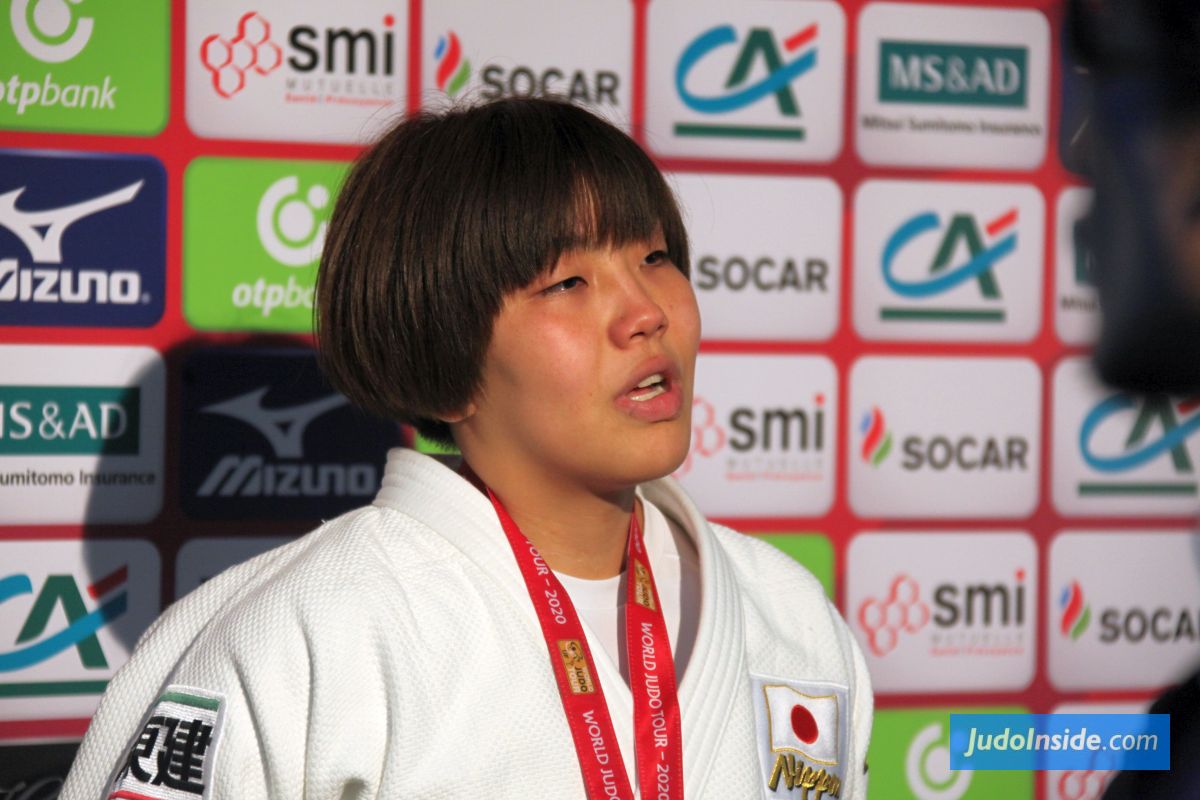Nami Nabekura, a former top -63kg player from Japan, is now coaching with the Swedish national judo team. In an interview published by EJU’s Szandra Szogedi, she talks about coaching Swedish superstar Tara Babulfath and cultural differences between Japanese judokas and Swedish ones.
Nabekura began her international senior competition career in 2015 and fought her last international in 2024. In between those years, she collected an impressive eight gold medals in the IJF World Tour.
Her first gold was at the 2016 Budapest Grand Prix where she defeated the great Tina Trstenjak (SLO) with osoto-gari. She followed that up with another gold in her next competition, the 2016 Qingdao Grand Prix, where she threw Lucy Renshall (GBR) with a marvellous multi-attack combination of uchimata-osoto-uchimata-harai-goshi combination.
At the 2017 Zagreb Grand Prix, she threw her compatriot, Megumi Horikawa, with two throws: uchimata and sleeve-seoi-nage to clinch the gold. At the 2018 edition of the Zagreb Grand Prix, she defeated Trstenjak again, this time with uchimata-sukashi for ippon, and the gold medal.
Next up, the 2019 Grand Masters in Qingdao. There, she cemented her role as a giant-slayer, defeating Clarisse Agbegnenou (FRA) with a very low, drop sleeve-seoi-nage to win the gold.
At the 2022 Paris Grand Slam, she fought another Japanese, Masako Doi, in the final. Nabekura won that on by penalties.
Her last two IJF gold medals were both won at the Ulaanbaatar Grand Slam (2022 and 2023) and both were won with kosoto, against Gili Sharir (ISR) and Szofi Ozbas (HUN) respectively.
Nabekura’s nearly 10-years’ long career was impressive. Along the way, she defeated some of the very best (even legendary) players of that time period.
Nabekura is helping Tara via her distinct style and deep technical knowledge. “Every day is a very good experience. I teach her Tara, but I learn from her too. She is talented, mentally and physically. Right now, competition is difficult, the level is very high. We are standing in front of a wall and need to climb over it together. We are working on this.” She said to the EJU Media team.
Nabekura is adapting to Swedish values that differ from traditional Japanese hierarchy. “In Japan, we repeat and repeat, even for hours if needed. In Sweden, training is fast and they ask, ‘Why?’” She laughs. “In Japan, the coach says and you say yes and do it. Here, you must explain. If they don’t know why they need to learn, you need to explain.” It’s changed her too, not in style, but in mindset. “My coaching technically speaking didn’t change but my mind did.”
